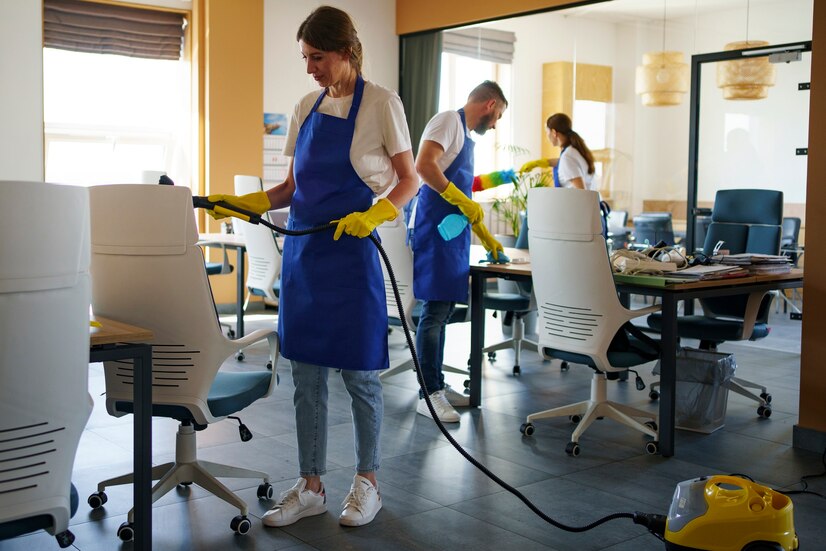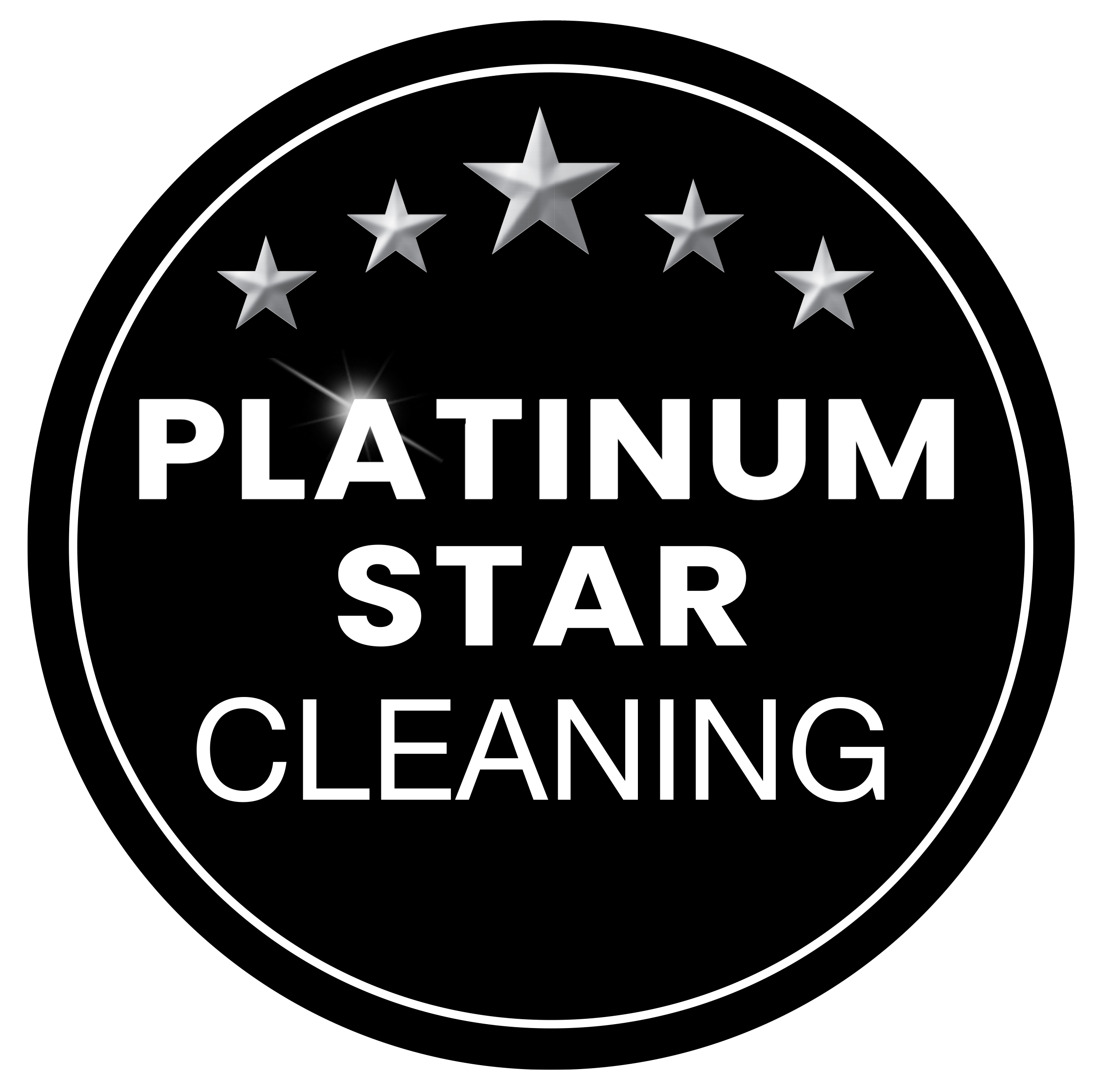Green Clean: Eco-Friendly Cleaning Services Explained
Discovering eco-friendly cleaning services isn’t just a trend; it’s a sustainable lifestyle choice. In a world where environmental concerns are at the forefront of our minds, opting for green cleaning solutions is a small yet impactful step towards a healthier planet. From reducing chemical exposure to minimizing waste, eco-friendly cleaning services offer a holistic approach to cleanliness. Let’s delve into the benefits and practices of these environmentally conscious alternatives.
What Makes Cleaning Eco-Friendly?
Eco-friendly cleaning involves using practices and products that minimize negative impacts on the environment and human health. This includes avoiding harsh chemicals, reducing water and energy consumption, and choosing sustainable materials. Eco-friendly cleaners often rely on natural ingredients like vinegar, baking soda, and essential oils, which are non-toxic and biodegradable. Additionally, eco-friendly cleaning methods prioritize waste reduction and recycling to create a more sustainable cleaning process overall.
Benefits of Green Cleaning Solutions
The benefits of green cleaning solutions are numerous and far-reaching. Firstly, they promote a healthier indoor environment by reducing exposure to harmful chemicals, which can lead to respiratory issues and allergies.
Green cleaning also helps protect the environment by minimizing pollution and conserving natural resources. Furthermore, using eco-friendly products often results in less packaging waste and supports companies that prioritize sustainability. Overall, green cleaning solutions contribute to a cleaner, safer, and more sustainable world for present and future generations.
Reducing Harmful Chemical Exposure
Traditional cleaning products often contain harsh chemicals such as ammonia, bleach, and phthalates, which can pose serious health risks to humans and pets. Eco-friendly cleaning solutions, on the other hand, rely on natural ingredients that are safer and gentler.
By reducing exposure to these harmful chemicals, eco-friendly cleaning helps protect indoor air quality and reduces the risk of respiratory problems, skin irritation, and other health issues. This is particularly important in households with children, elderly individuals, or anyone with sensitivities to chemical irritants.
Minimizing Environmental Impact
Eco-friendly cleaning practices aim to minimize the environmental impact of cleaning activities by reducing water and energy consumption, minimizing waste generation, and choosing sustainable materials.
This includes using energy-efficient appliances, such as low-flow water faucets and eco-friendly washing machines, as well as opting for biodegradable cleaning products that break down harmlessly in the environment. By adopting these practices, individuals and businesses can help preserve natural resources, protect ecosystems, and reduce their carbon footprint.
Sustainable Cleaning Practices

Sustainable cleaning practices focus on minimizing waste, conserving resources, and reducing pollution throughout the cleaning process. This includes using environmentally friendly cleaning products, such as biodegradable detergents and non-toxic disinfectants, as well as implementing efficient cleaning techniques that require less water and energy.
Sustainable cleaning also involves proper waste management, such as recycling containers and composting organic waste, to minimize the amount of waste sent to landfills. By adopting sustainable cleaning practices, individuals and businesses can contribute to a healthier planet and a more sustainable future.
Biodegradable Cleaning Products
Biodegradable cleaning products are formulated using natural ingredients that break down safely and harmlessly in the environment. Unlike traditional cleaning products, which often contain harsh chemicals that can linger in the air and waterways, biodegradable cleaners are gentler on the planet and pose less risk to human health.
Common biodegradable ingredients include plant-based surfactants, enzymes, and essential oils, which are derived from renewable resources and do not accumulate in the environment. By choosing biodegradable cleaning products, consumers can reduce their environmental impact and promote a more sustainable cleaning industry.
Renewable Energy Usage
Using renewable energy sources, such as solar, wind, and hydropower, to power cleaning operations can significantly reduce carbon emissions and minimize environmental impact. By investing in renewable energy technologies, cleaning companies can lower their reliance on fossil fuels and reduce their contribution to climate change.
Renewable energy usage also helps decrease air and water pollution associated with traditional energy production methods, leading to cleaner and healthier communities. Additionally, utilizing renewable energy can help cleaning businesses save money in the long run by reducing energy costs and increasing energy independence.
Eco-Friendly Packaging Options
Eco-friendly packaging options aim to reduce waste and minimize environmental impact by using sustainable materials and minimizing packaging waste. This includes using recycled and recyclable materials, such as cardboard, paper, glass, and aluminum, as well as reducing excess packaging and eliminating single-use plastics. Eco-friendly packaging options also prioritize biodegradable and compostable materials that break down naturally without harming the environment.
By choosing eco-friendly packaging options, cleaning companies can reduce their carbon footprint, conserve natural resources, and demonstrate their commitment to sustainability to customers and stakeholders.
Zero Waste Cleaning Methods
Zero waste cleaning methods aim to minimize waste generation and maximize resource efficiency throughout the cleaning process. This includes using reusable cleaning tools and supplies, such as microfiber cloths, mop heads, and spray bottles, instead of disposable alternatives.
Zero waste cleaning also involves repurposing and recycling materials whenever possible, as well as composting organic waste to divert it from landfills. By adopting zero waste cleaning methods, individuals and businesses can reduce their environmental impact, save money on cleaning supplies, and contribute to a more sustainable future.
Non-Toxic Cleaning Agents
Non-toxic cleaning agents are formulated using natural ingredients that are safe for human health and the environment. Unlike traditional cleaning products, which often contain harsh chemicals that can pose risks to respiratory health, skin, and eyes, non-toxic cleaning agents rely on plant-based ingredients and essential oils to clean effectively without harmful side effects.
Common non-toxic ingredients include vinegar, baking soda, lemon juice, and hydrogen peroxide, which are known for their antibacterial and deodorizing properties. By choosing non-toxic cleaning agents, consumers can create a healthier indoor environment and reduce their exposure to harmful chemicals.
Protecting Indoor Air Quality
Indoor air quality can have a significant impact on health and well-being, especially for individuals with allergies, asthma, or other respiratory conditions. Traditional cleaning products often contain volatile organic compounds (VOCs) and other harmful chemicals that can pollute indoor air and contribute to respiratory problems and other health issues.
Eco-friendly cleaning solutions, on the other hand, use natural ingredients that are safer for indoor air quality and do not release harmful fumes or residues. By choosing eco-friendly cleaning products and practices, individuals can protect indoor air quality and create a healthier living environment for themselves and their families.
Supporting Local Eco-Economies
Supporting local eco-economies involves choosing cleaning products and services that are produced and distributed locally, using environmentally friendly practices. This includes purchasing cleaning supplies from local suppliers and supporting small businesses that prioritize sustainability and social responsibility.
By investing in local eco-economies, consumers can reduce the environmental impact of transportation and distribution, support local communities, and promote economic resilience and self-sufficiency. Additionally, supporting local eco-economies helps create jobs and opportunities for individuals and businesses that are committed to protecting the environment and promoting sustainability.
Eco-Friendly Cleaning Equipment
Eco-friendly cleaning equipment is designed to minimize environmental impact and promote sustainability throughout the cleaning process. This includes using energy-efficient appliances, such as vacuum cleaners, steam cleaners, and floor scrubbers, that consume less electricity and water than traditional models.
Eco-friendly cleaning equipment also includes tools and accessories made from sustainable materials, such as recycled plastic, bamboo, and stainless steel, that are durable and long-lasting. By investing in eco-friendly cleaning equipment, individuals and businesses can reduce their carbon footprint, conserve natural resources, and improve overall cleaning efficiency and effectiveness.
Eco-Certified Cleaning Services
Eco-certified cleaning services are accredited by independent organizations that verify their adherence to environmental standards and best practices. These certifications ensure that cleaning companies use eco-friendly cleaning products and practices that minimize environmental impact and promote sustainability.
Common eco-certifications include Green Seal, EcoLogo, and EPA Safer Choice, which certify products and services that meet rigorous environmental and performance criteria. By choosing eco-certified cleaning services, consumers can trust that their cleaning needs are being met in a way that prioritizes environmental responsibility and human health.
Eco-Friendly Cleaning for Businesses
Eco-friendly cleaning for businesses involves adopting sustainable cleaning practices and using environmentally friendly products to minimize environmental impact and promote corporate social responsibility. This includes implementing green cleaning programs that prioritize waste reduction, energy efficiency, and resource conservation throughout the cleaning process.
Eco-friendly cleaning for businesses also involves educating employees about the importance of sustainability and encouraging them to participate in green initiatives, such as recycling programs and energy-saving measures. By prioritizing eco-friendly cleaning practices, businesses can reduce their carbon footprint, enhance their brand reputation, and attract environmentally conscious customers and stakeholders.
Green Cleaning Tips for Homeowners
Green cleaning tips for homeowners include using eco-friendly cleaning products and practices to minimize environmental impact and promote sustainability in the home. This includes choosing natural cleaning ingredients, such as vinegar, baking soda, and lemon juice, which are effective at cleaning and disinfecting without harmful chemicals. Green cleaning tips for homeowners also involve reducing water and energy consumption by using efficient appliances and implementing water-saving measures, such as fixing leaks and installing low-flow fixtures. Additionally, homeowners can reduce waste by using reusable cleaning tools and containers instead of disposable alternatives.
As we conclude our exploration of eco-friendly cleaning services, it’s evident that choosing sustainable practices isn’t just a choice; it’s a responsibility we owe to our planet and future generations. At Platinum Star Cleaning Services, we’re committed to offering top-tier cleaning solutions while minimizing our environmental footprint.
For inquiries or to experience the difference of eco-friendly cleaning firsthand, reach out to us at (610) 504-5469 or [email protected]. Trust us to deliver excellence in every clean, as we prioritize quality, training, and client satisfaction above all else. Join us in our journey towards a cleaner, greener world.

